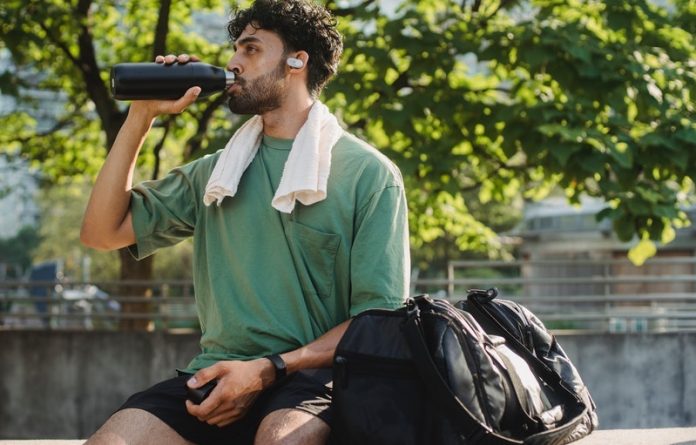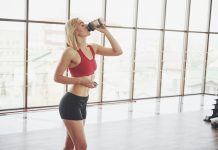
In a recent study from Edith Cowan University, researchers found that drinking electrolytes instead of pure water can help prevent muscle cramps.
They found that people who drank electrolyte-enhanced water during and after exercise were less susceptible to muscle cramps than those who drank pure water.
Muscle cramps are a common painful condition affecting many people, including around 39% of marathon runners, 52% of rugby players, and 60% of cyclists.
The current study builds on the evidence that a lack of electrolytes contributes to muscle cramps, not dehydration.
The researchers tested 10 men who ran on a downhill treadmill in a hot (35ºC) room for 40 to 60 minutes to lose 1.5 to 2 % of their body weight through sweat in two conditions.
They drank plain water during and after exercise for one condition and took a water solution containing electrolytes in the other condition.
The participants were given electrical stimulation on their calves to induce muscle cramps. The lower the frequency of the electrical stimulation required, the more the participant is prone to a muscle cramp.
The team found that the electrical frequency required to induce cramps increased when people drank the electrolyte water but decreased when they consumed plain water.
This shows that muscles become more prone to cramps by drinking plain water, but more immune to muscle cramps by drinking the electrolyte water.
Electrolytes are minerals including sodium, potassium, magnesium, and chloride. They are essential for muscle health and help the body to absorb water.
Oral rehydration solutions contain electrolytes in specific proportions and can be made with water, salt and sugar. They are commonly found in supermarkets and pharmacies.
The team says electrolytes have many benefits for both athletes and the general population.
Electrolytes are vital to good health—they help the body absorb water more effectively than plain water and replace essential minerals lost through sweat or illness.
People should consider drinking oral rehydration fluids instead of plain water during moderate to intense exercise, when it’s very hot, or when they are sick from diarrhea or vomiting.
If you care about wellness, please read studies about how to lose belly fat fast, and this interval training could reduce belly fat.
For more information about wellness, please see recent studies about 6 things to know before you do high-intensity exercise, and results showing why people with type 2 diabetes should take resistance exercise.
The research is published in the Journal of the International Society of Sports Nutrition and was conducted by Professor Ken Nosaka et al.
Copyright © 2022 Knowridge Science Report. All rights reserved.



